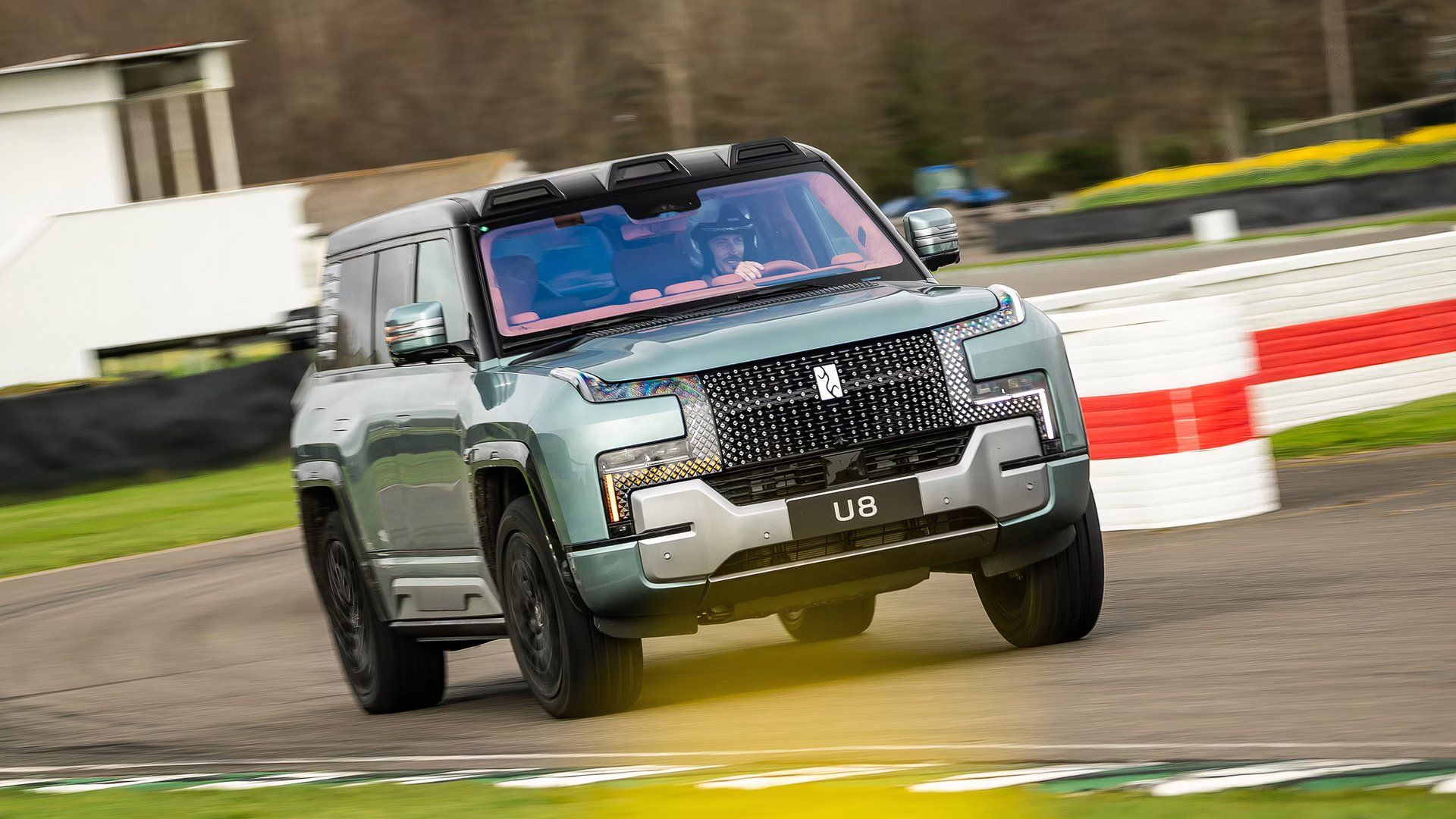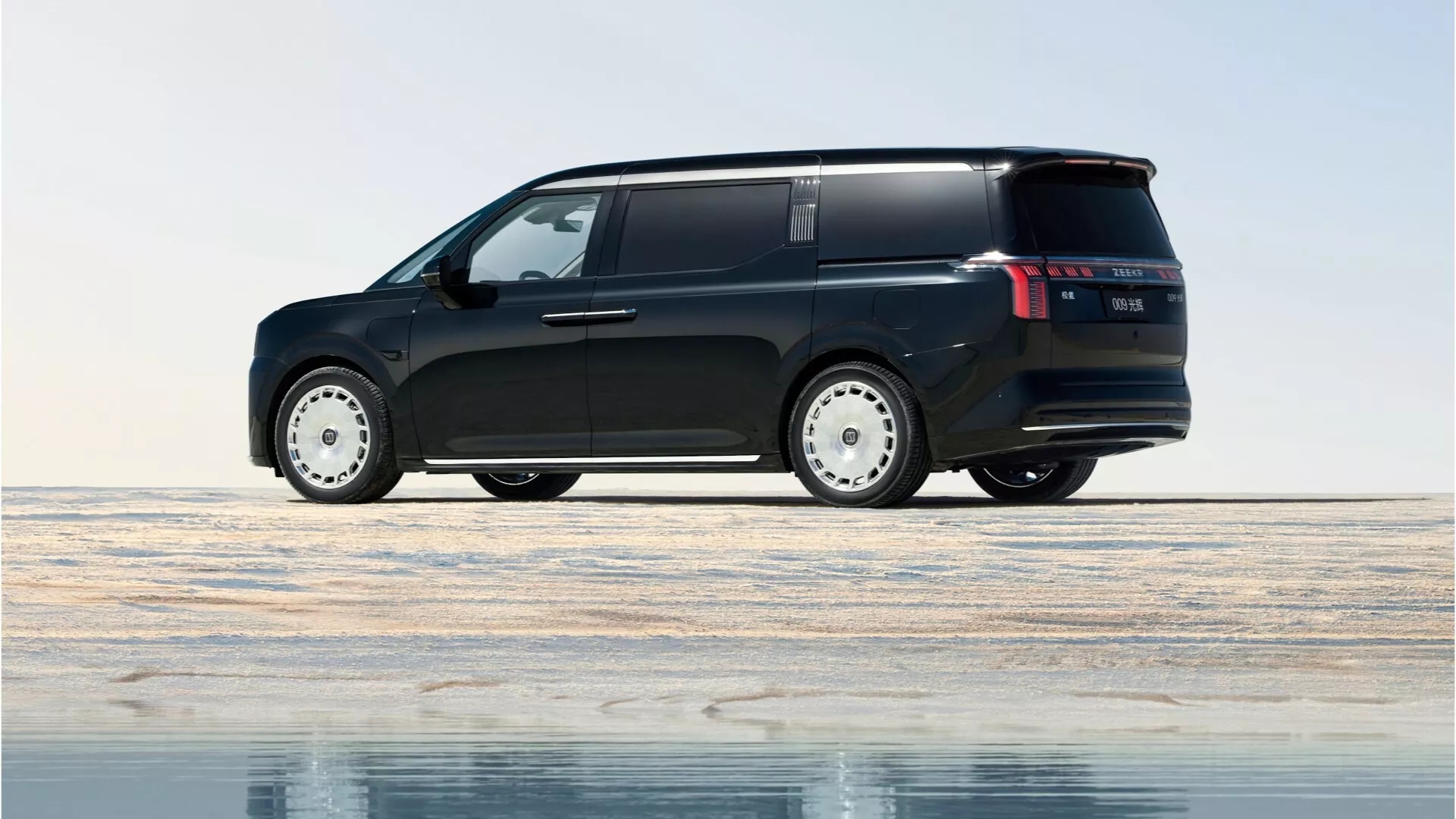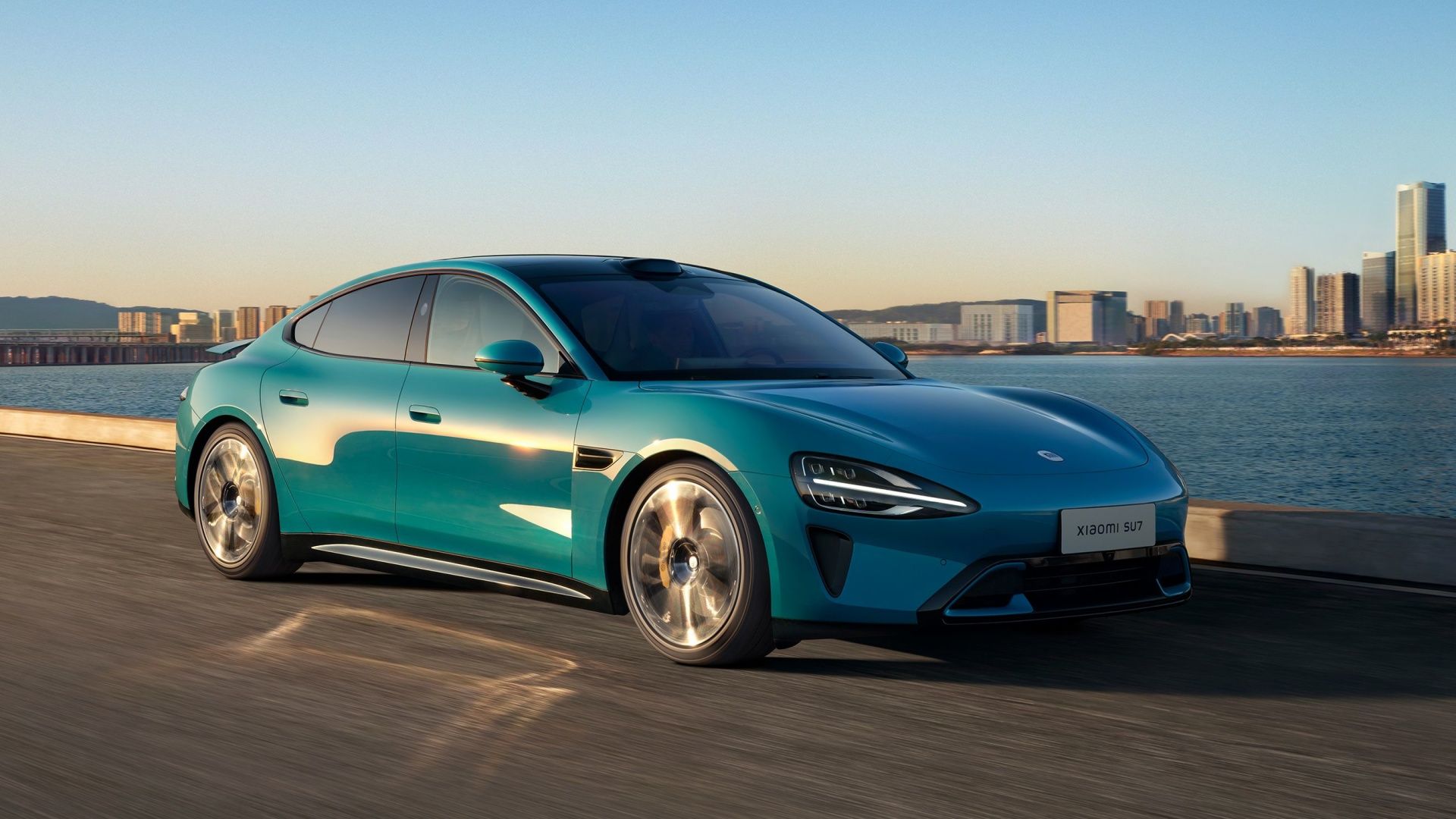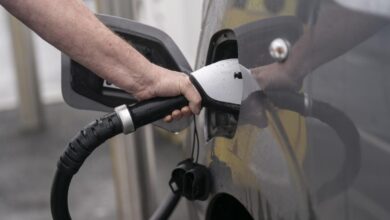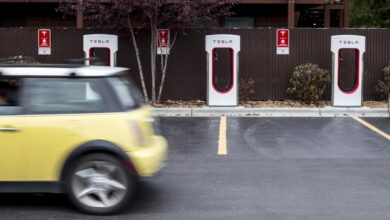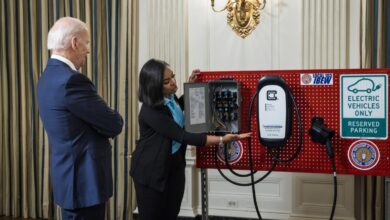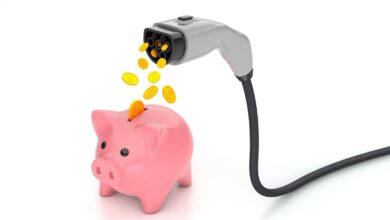Biden Administration Imposes 102% Tariff On Chinese-Made Electric Vehicles
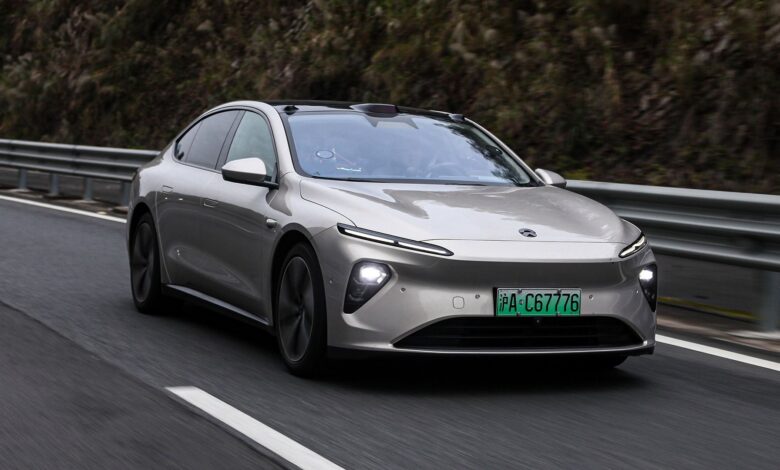
Key Takeaways
- Biden Administration imposes extreme tariffs on Chinese-built EVs.
- Tariffs aim to protect American workers and manufacturing from unfair trade practices.
- Analysts believe this could foster a trade tiff between China and the United States.
The Biden Administration has announced what is effectively a 102.5% tariff on electric vehicles imported from China (up from total levels of 27.5%), in turn making any Chinese-built EVs prohibitively expensive for American consumers. The reason? “A 100% tariff rate on EVs will protect American manufacturers from China’s unfair trade practices,” says the White House.
While brands such as BYD (Build Your Dreams) sell their offerings in Europe – and plan to expand into Mexico – the idea of selling a Chinese vehicle in the United States is contentious. The government says this move will ensure that President Biden’s vision for the future of the automotive industry will remain intact, with American manufacturing and American workers at the fore. It will be interesting to see how this affects Chinese-built EVs like the Lotus Eletre, due in the US later this year.
“China’s forced technology transfers and intellectual property theft have contributed to its control of 70, 80, and even 90% of global production for the critical inputs necessary for our technologies, infrastructure, energy, and health care – creating unacceptable risks to America’s supply chains and economic security.”
Protecting US Investments
To encourage automakers to set up shop in the US and build their EVs in America, the Biden Administration has incentivized the local production of batteries and EVs. Aside from this, certain vehicles that comply with the requirements receive a $7,500 tax credit, which pushes citizens to buy electric vehicles. It also encourages manufacturers to build cars that can receive the credit. The European Union has also considered tariffs on Chinese-built EVs. China’s Ministry of Commerce said at the time that it would have “a negative impact on the China-EU economy and trade sanctions,” and automotive CEOs like BMW’s Oliver Zipse have argued that tariffs would weaken the European auto industry in the long term.
Add CarBuzz to your Google News feed.
“The increase in the tariff rate on electric vehicles will protect these investments and jobs from unfairly priced Chinese imports,” reads the White House statement. The Administration has increased tariffs on numerous Chinese imports, not just electric vehicles built there. US Trade Representative Katherine Tai said the tariffs were justified as China continues to steal intellectual property belonging to the United States, reports Reuters.
Tariffs Could Have Consequences Further Down The Line
While the 100% tariffs aim to protect the American economy from affordable Chinese EVs, analysts have said a potential trade tiff could negatively affect the US, China, and EV consumers. The price of electric vehicles could rise for everyone, delaying Biden’s goals for mass EV adoption and creating more jobs in the manufacturing sector. There is also the risk that the Chinese government will retaliate and impose tariffs on American-made vehicles. This could hurt workers in the long run.
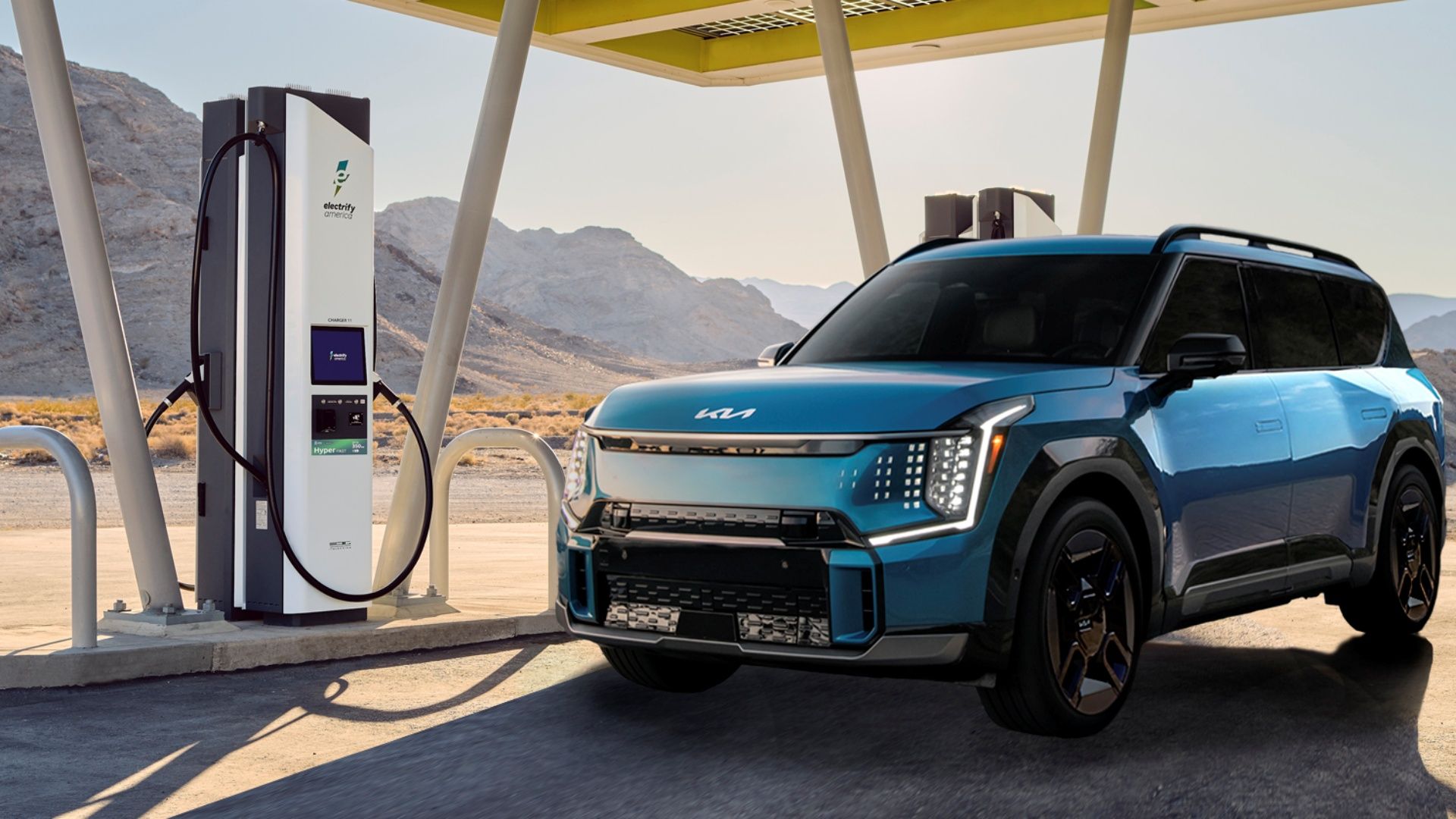
Related
Automakers Sourcing Graphite In China Score Massive Tax Credit Extension
Companies can continue to source graphite there until 2027 and still qualify for the credit.
Take the Mercedes-Benz plant in Tuscaloosa, Alabama, for example. The facility builds the EQS SUV for global markets, including China. Should these vehicles be slapped with hefty penalties, there’s the potential that American jobs could be affected. Of course, there are ways for Chinese automakers to get around these tariffs. As a reminder, BYD has plans to set up a factory in Mexico. If the company can successfully build an affordable electric vehicle on North American soil, with mostly North American-sourced components, it could infiltrate the market and threaten American automakers like Ford and GM.
US Car Brands Do Big Business In China
We’ve seen this happen before when steep tariffs forced the Japanese automakers to establish manufacturing plants in the United States. With no tariffs to worry about, Toyota, Honda, and Nissan grew from strength to strength, which caused financial woes for Ford, General Motors, and the Chrysler Corporation. Should the Chinese government retaliate, there are a number of ways in which it could make life more difficult for American citizens and companies.

Related
How Honda Overcame The WWII Stigma To Live The American Dream
With the recent opening of the American Honda Collection Hall, we wanted to explain why the exhibit is so significant (tour pics inside).
Let’s not forget that many American automakers have successful partnerships with Chinese automakers and sell hordes of vehicles in the world’s biggest market. Lincoln even builds the new Nautilus exclusively in China and imports it into the USA. The SAIC-GM joint venture sells Buick, Chevrolet, and Cadillac products in China. Should the government impose taxes or tariffs on American vehicles, sales could fall, and Chinese consumers could look to homegrown options instead. This could be a concern for Buick; China has accounted for as much as 80% of its global sales.
Batteries And Battery Components Get Higher Tariffs, Too
Elsewhere, the tariff rate for lithium-ion EV batteries will increase from 7.5% to 25% this year. Battery parts face the same tariff increase. China controls 80% of “certain segments of the EV battery supply chain,” including the mining, processing, and refining of minerals. The White House says this makes American battery supply chains vulnerable and puts the country’s clean energy goals at risk.

Related
China Accuses Biden Of Breaking International Trade Rules By Blocking Chinese Batteries
This is the same argument that China and other countries made before the IRA gathered momentum, so what chance of success can it have now?
“Through the Bipartisan Infrastructure Law, the Defense Production Act, and the Inflation Reduction Act, the Biden-Harris Administration has invested nearly $20 billion in grants and loans to expand domestic production capacity of advanced batteries and battery materials,” reads the statement. It will be interesting to see not only how the Chinese respond to these tariffs but also how automotive executives respond. Like his Bavarian counterpart, Stellantis CEO Carlos Tavares has said tariffs are not the way forward and will hinder progress.

